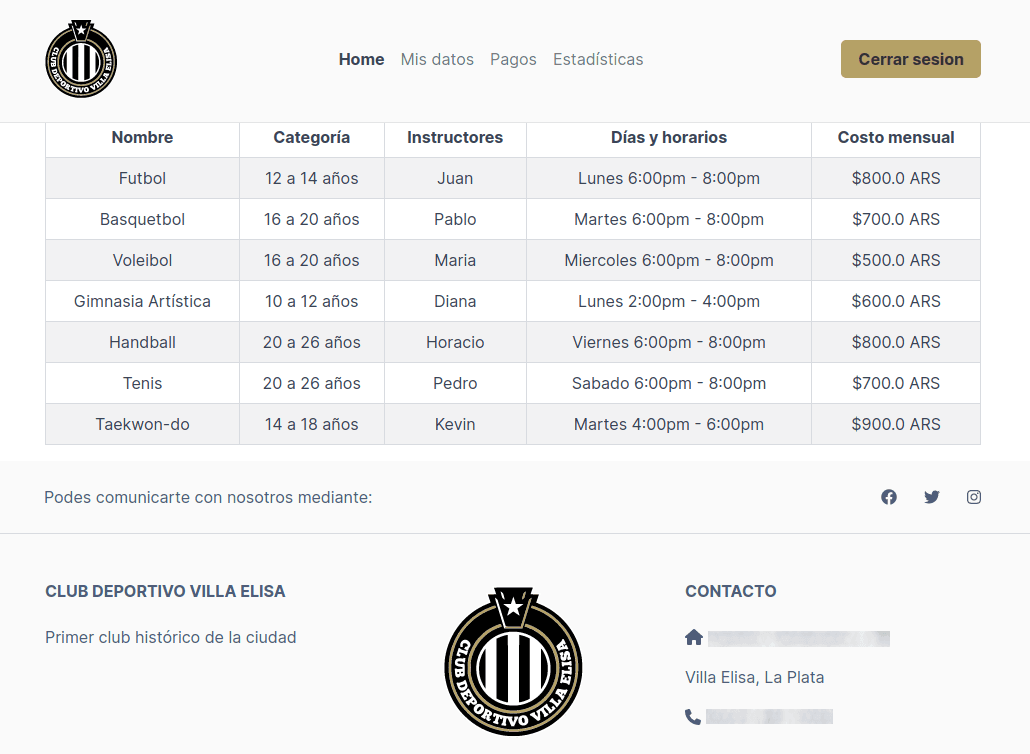This web application aimed to help a sports club to manage its members, its activities, and its finances. It was developed using Vue.js, Flask, and PostgreSQL. The project was divided into two main parts: A private app and a public app. As a team, we first developed the private part, in which many API endpoints were exposed for the public app to use. A PosgreSQL database was used to store the data.

Private app
The private app included a login system with roles and permissions, a user management system, and a whole associates management system for the club (being these ones the public app users, and the point of the whole system). It was possible to make use of the full CRUD operations on the associates and generate a PDF file with the information of each associate, as an associate ID card.
# request.form.id
@payment_api_blueprint.get("/<id>")
def associate_payments(id):
"""Gets payments from associate
Args:
id (int): Associate id
Returns:
JSON: List of payments for an associate
"""
associate = get_associate_by_id(id)
if not associate:
return response(404, "No existe el asociado")
last_fee = get_last_fee_paid(associate)
payment = build_payment(last_fee, associate)
payments = list(
filter(
lambda x: x["deleted"] == False,
map(lambda x: x.to_dict(), associate.payments),
)
)
res = {
"payments": payments,
"name": associate.name,
"actual_amount": payment[3], # amount
"surname": associate.surname,
"entry_date": associate.entry_date.strftime("%Y-%m-%d %H:%M:%S.%f"),
}
return response(200, res)
Public app
The public app was developed using Vue.js, receiving the information from the private app through the exposed API endpoints. It was possible to send the payment receipts to the Club under a user ID, and also to see what activities the Club offered, and some statistics about the Club evolution, related to its associates.
import axios from './axios'
import { PaymentResponse } from '../interfaces/responses/PaymentResponse'
export const getPayments = async (id: number): Promise<PaymentResponse> => {
const response = await axios.get('/me/payments/' + id)
return response.data
}
export const createPayment = async (
id: number,
image: string
): Promise<PaymentResponse> => {
const response = await axios.post('/me/payments/' + id, { image })
return response.data
}